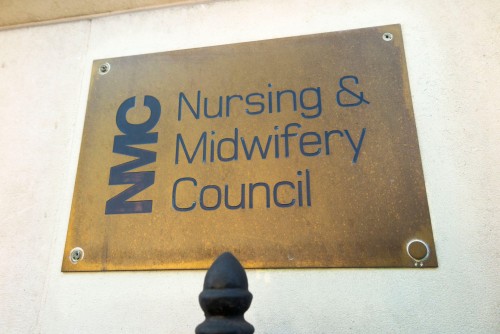The deaths of nurses who take their own lives while awaiting the outcome of a fitness to practise (FtP) investigation is a “key concern” for the leaders of the Nursing and Midwifery Council (NMC).
At a meeting of the NMC Council today, its leaders were asked about how they were addressing, and learning from, the issue of a small number of nurses who have died by suicide while under investigation.
“We’re very much committed to understanding where in our practice we have opportunities to learn and reduce the risk of suicide and other harms”
Donna O’Boyle
Last year, former chief crown prosecutor Nazir Afzal and Rise Associates published a damning review into the regulator, which accused it of being a “hotbed of bullying, racism and toxic behaviour”.
As well as many cultural issues in the regulator, the report also heavily criticised both the size of the current FtP backlog, and the way that the NMC was, at the time, trying to reduce it.
Among the findings in the report was the revelation that, in 2023, six nurses had died by suicide while under investigation by the NMC.
Since then, the regulator has continued efforts to improve its FtP processes, while also continuing to face tight scrutiny for the way it has gone about this.
At today’s meeting, representatives from NMC Watch asked the NMC Council why it had not published “ongoing lessons learned” from the deaths by suicide of nurses under FtP investigation since 2018.
They asked if, in future, the NMC would request information on what FtP stage the registrant was at when the death happened, any distress prior to suicide and if they had received a mental health risk assessment.
NMC Watch, an organisation that frequently critiques the regulator, asked: “If not, do the registrant members of the council not see this as vital for safeguarding?”
In response, Professor Donna O’Boyle, executive adviser to the NMC for its FtP improvement programme, said: “We acknowledge every type of this case as a tragedy.
“And we accept that there will be public interest in the circumstances surrounding registrant deaths by suicide,” she said.
“As we have already noted, we’re very much committed to understanding where in our practice we have opportunities to learn and reduce the risk of suicide and other harms.
“But clearly that brings a number of challenges, and in many cases, we are privy to information about death by suicide, but in others, we are simply not,” she added.
Professor O’Boyle said obtaining some of the information suggested by NMC Watch, in order to investigate any links between the deaths and investigation proceedings, “cannot be straightforward”.
She continued: “It’s clearly highly sensitive data, and we need to understand the data protection issues that we obviously must abide by and address.
“We know it’s often difficult to distil contextual, positive contributory factors, and of course, it may not be possible or appropriate to provide a report that includes details of individual cases because of reasons of confidentiality, and I don’t think anyone would want us to do that within the public domain.”
Professor O’Boyle added that NMC staff were “trained to identify people that have concerns”, and that they ensured they signposted them to support.
“But we need to first determine whether the questions we can answer from our own case material, and then make an assessment about whether it’s possible or right to pursue further information and data.
She added: “We’re going to explore this further with a legal and a trauma informed lens, and then provide an update to council in due course.”
Registrant council member Eileen McEaney highlighted that the deaths by suicide of nurses under investigation was “a key concern for all members of council”.
She said that it was an “area of further work” for council members who lead on safeguarding at the regulator.
Earlier in the meeting, Lesley Maslen, NMC executive director of professional regulation, gave an update on the current state of FtP at the regulator.
Ms Maslen outlined, as NMC announced earlier this week, that there had been progress on progressing FtP cases more quickly, with more than 70% of cases now closing within the 15 month benchmark.
She acknowledged, however, that far more had to be done and that there was “pressure” due to a higher-than-anticipated number of new referrals, at an average of 565 per month.
As well as this, she spoke about further training being completed by FtP investigators, aimed at improving both their ability to carry out the role, and their cultural sensitivity, in line with the NMC’s cultural transformation plan which was created in response to the Rise Associates report.

